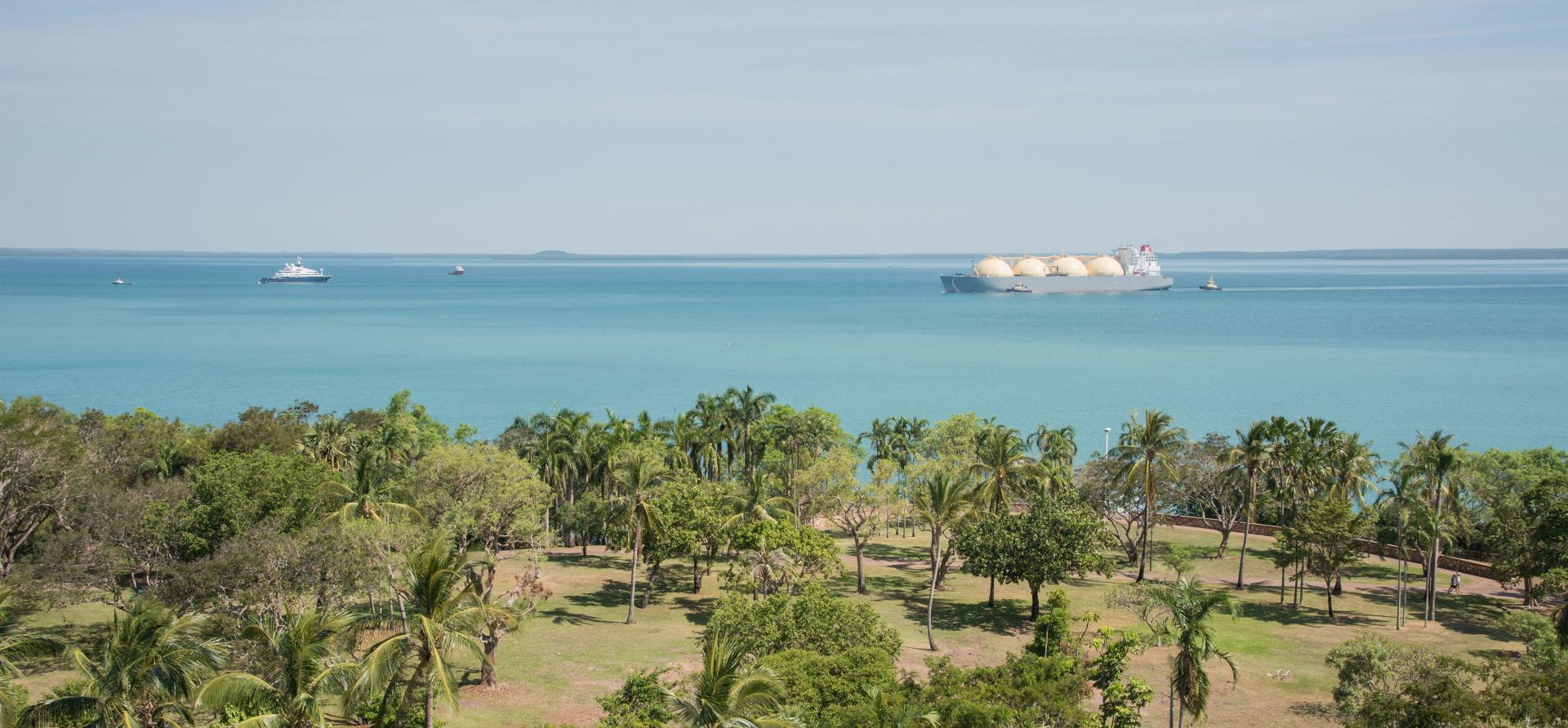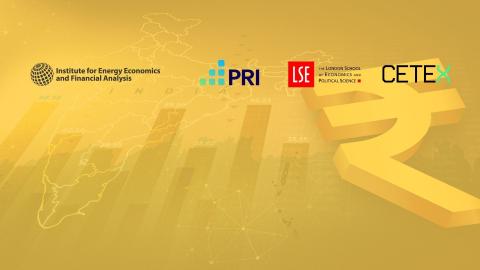SK E&S, K-Sure and Kexim face rising and unquantified risks with their backing of the Barossa gas project off Northern Australia

Key Findings
The Barossa gas project in Northern Australia currently has no government licence to proceed and is facing delays and increasingly unfavourable trends on two fronts — native title and climate-related risks.
With work stopped on the pipeline construction and a new round of consultation with the native title holders ordered, financial pressures are rising on the Australian-based operator Santos and its partners SK E&S and JERA.
It is well past time for the Korean government and the agencies funding and insuring the Barossa project, Kexim and K-Sure, to review the government’s decision to back the Barossa project in light of these investment risks.
Far from Korean shores, the Export-Import Bank of Korea (Kexim) and the Korea Trade Insurance Corp (K-Sure) are risking Korean public money by financing SK E&S’ investment in the Barossa gas project off the coast of Northern Australia. The investment risks these Korean government agencies face have risen considerably since the initial investment decisions were made.
Investing is an activity that is governed by long-term trends. These trends must be identified and quantified. In the case of the Barossa project — led by Santos in partnership with SK E&S and JERA — the trends are unfavourable and, in some cases, almost unquantifiable.
The Korean government agencies funding and insuring the Barossa gas project face significant and mounting risks on two fronts — native title and climate-related risks.
The Korean government agencies funding and insuring the Barossa gas project face significant and mounting risks on two fronts — native title and climate-related risks. Both of these risks have increased significantly since Kexim and K-sure first backed the project.
The Barossa gas project currently has no Australian government licence to proceed. In September 2022, the Federal Court of Australia held that the Tiwi Islands’ traditional owners had not been sufficiently consulted and cancelled the project’s licence. The Australian-based operator, Santos, was given just two weeks to remove its drill rig and a new round of consultation with the Tiwi Islanders was ordered. Proponents of the Barossa gas project appealed the decision. In December 2022, the appeal was flatly rejected.
In a further blow to the project, the National Offshore Petroleum Safety and Environmental Management Authority — the Australian petroleum industry regulator — ordered that work be stopped on the pipeline construction.
Santos is starting a new round of native title holder consultation. A combination of having to remove the drill rig, cease pipeline construction, commence new native title holder consultations and resubmit a new application for a licence to drill will likely delay the project by over two years.
Compounding the project’s native title woes, in March 2023, the Federal Court, in a historic decision, granted native title over the seas around the Tiwi Islands to the Tiwi Island indigenous community. To say that the trend in native title rights is rapidly changing would be an understatement.
The financial pressures are rising on Santos, SK E&S and JERA as delays cost money.
The financial pressures are rising on Santos, SK E&S and JERA as delays cost money. In addition to these delays in the Barossa gas project, the gas field that supplies the Darwin LNG plant runs out of gas in the first half of 2023, leaving the plant without feedstock. Barossa gas was slated to fill the plant but is currently without a licence.
It is well recognised that financial pressures on oil and gas companies are rising due to the need to mitigate the effects of climate change. A decade ago, climate risks were lower than five years ago, which are far lower than those faced today. The Barossa gas project is Australia’s most carbon-intensive offshore gas project under attempted development.
To appease its financiers due to the project’s high emissions and mounting climate risks, SK E&S and its partners Santos and JERA hope to offset some of the emissions produced at Barossa with a carbon capture and storage (CCS) project at Bayu-Undan in the Timor Sea.
There are many issues with the Bayu-Undan CCS project. It is not slated to start at the same time as LNG is produced from Barossa but rather many indeterminate years after production commences. Until the CCS project is up and running, the carbon dioxide will be vented into the atmosphere.
A global study of the CCS industry conducted by IEEFA has shown that CCS is an unproven technology despite over 50 years of operation at scale. There are only a handful of successful projects — most underperform key metrics outlined by the projects’ proponents, and some projects have failed.
The Bayu-Undan field is over 800 km from Barossa via a pipeline to Darwin. The emissions from transporting the carbon dioxide such vast distances will cancel out any emissions savings from the CCS project. This makes the Bayu-Undan CCS project an expensive and ultimately futile project.
Regardless of whether a new CCS project could be identified and undertaken, it would not solve the emissions problems from gas. No new gas projects can be contemplated if we are to achieve net zero by 2050, according to the International Energy Agency. Even if the CCS project were successful, it would not solve the emissions problem. Typically between 85% and 90% of emissions from LNG are made when the gas is burnt. Any CCS project only addresses part of the 10–15% of emissions that occur when the gas is produced — making it an ineffective solution.
It is well past time for the Korean government to review its decision to back the Barossa project in light of the extensive problems it has faced and increasing climate risks. Investments are made with long-term trends in mind. The trends affecting this project are unfavourable, and value is being destroyed for Korean companies and government agencies.
This article first appeared on Energy Tracker Asia.
















